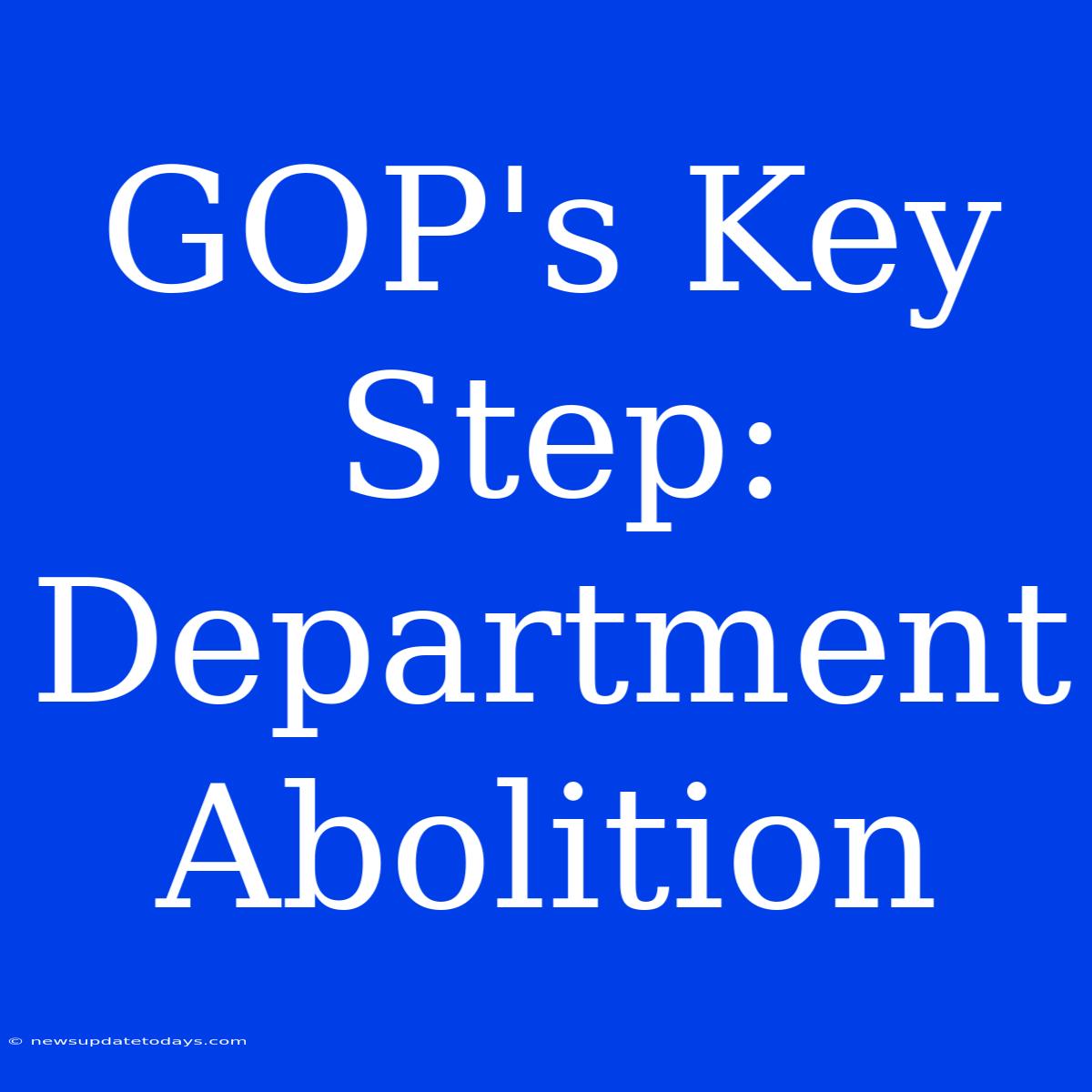GOP's Key Step: Department Abolition – Restructuring the Federal Government?
The Republican Party's proposed abolition of specific federal departments has emerged as a key policy platform, sparking significant debate about the size and scope of government. This article delves into the arguments for and against such drastic measures, examining the potential consequences for both the economy and citizens.
Understanding the Proposals
While specific proposals vary, the core idea revolves around eliminating federal departments deemed inefficient, duplicative, or exceeding their constitutional mandate. The targets often include agencies perceived as overly bureaucratic or encroaching on states' rights. This isn't about simply reducing budgets; it’s a fundamental restructuring of the federal government's role and reach.
Arguments in Favor of Department Abolition
Proponents argue that eliminating certain departments would streamline government operations, reduce spending, and return power to the states. Key arguments include:
- Reduced Bureaucracy: Eliminating layers of bureaucracy and overlapping agencies could lead to increased efficiency and faster decision-making.
- Fiscal Responsibility: Abolishing departments represents a significant cost-cutting measure, freeing up resources for other priorities.
- States' Rights: Returning responsibilities to the states aligns with the principles of federalism and allows for more localized solutions.
- Increased Accountability: Smaller, more focused agencies could be easier to oversee and hold accountable.
Arguments Against Department Abolition
Critics raise concerns about the potential negative consequences of such drastic actions, highlighting:
- Disruption of Services: Eliminating departments could disrupt essential services, impacting citizens' access to healthcare, education, and other vital programs.
- Job Losses: The abolition of departments inevitably leads to job losses, both directly within the targeted agencies and indirectly through related industries.
- Loss of Expertise: Eliminating agencies could result in the loss of valuable expertise and institutional knowledge, hindering effective policymaking.
- Unintended Consequences: The complexity of the federal government means that eliminating departments could have unforeseen and negative cascading effects on other areas.
The Economic Impact – A Complex Picture
The economic impact of abolishing federal departments is highly contested. While proponents foresee significant cost savings and increased efficiency, critics warn of potential economic instability and job losses. The effects would depend heavily on which departments are targeted and the plan for transferring their responsibilities. A thorough cost-benefit analysis considering both short-term and long-term implications is crucial.
The Political Landscape
The debate over department abolition is deeply intertwined with broader political ideologies. It reflects differing views on the appropriate role of government, the balance of power between federal and state governments, and the ideal size and structure of the federal bureaucracy. The likelihood of such proposals becoming reality hinges on the political climate and the prevailing power dynamics within the government.
Conclusion: A Need for Careful Consideration
The Republican Party's focus on abolishing federal departments represents a significant shift in the approach to governing. While the promise of reduced bureaucracy and increased efficiency is appealing, the potential risks, including disruptions to vital services and economic instability, demand careful consideration. A thorough, transparent, and evidence-based evaluation of the potential consequences is critical before implementing such drastic changes. The debate will continue to shape the political landscape and determine the future trajectory of the federal government.

